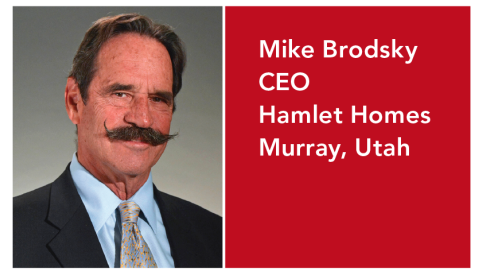Radical as it seems, profit sharing is about to become standard practice in the third millennium economy. (It’s already a fixture in the dot-com world.) And you need deferred compensation to keep key managers moving along career paths within your company, rather than testing the waters elsewhere.
Remember, your toughest competitors recruit every day. Finding and keeping the best people is the surest route to success.
Profit sharing across the whole company pulls teams together, gives them shared goals and rewards. It helps create a learning organization and gets every employee thinking like an entrepreneur. Deferred comp is a major element in developing continuity in the management team, and management talent has never been more precious. Paying performance-targeted bonuses over three to five years, rather than all at once, forms a classic set of golden handcuffs, making it hard for a valued manager to leave.
In this consolidating industry, the critical factor now slowing growth of the big national builders is a shortage of good managers. Headhunters working for them are everywhere. They have five openings for every good candidate they can find. A new and growing small or mid-sized builder is a beacon to headhunters. They will call your managers constantly.
To learn how they work, I called one of the top headhunters in the business, Ft. Lauderdale, Fla.-based John Ropes, and asked what he would advise a new builder (just launching a company) do to keep key people.
"We’ve never seen a tighter market for people," Ropes says. "For a home builder division president, the going rate is now above $500,000 a year in base salary. It’s not unusual to see seven figures for a large division in a big market like Atlanta, Chicago or Dallas.
"If you must be in business for yourself, keep in mind there’s a lot of innovation going on now, and it’s all in deferred comp. What is it that will motivate someone to move from one job to another? It’s got to be a more generous share of the performance of the business unit in question," Ropes reasons.
He says deferred comp and profit-sharing plans are becoming increasingly complex, but cautions that’s not the way to go. "My advice is to keep it simple. Some of the best plans now have accelerating profit participation above a set percent of return on capital.
"For managers with functional responsibility, like a V.P. of construction, you ought to tie most of the bonus and deferred comp to the performance of the department in question, with a kicker tied to profitability of the entire organization. If you have a person doing really well, you don’t want to see that person’s compensation dragged down by the lesser success of others," warns Ropes. "If you allow that to happen, you’ll lose that manager."
Public companies can offer stock options to targeted managers. But there are ways a private builder can compete with those options, even when the stocks do well.
"Private companies can do stock options," says Denver-based management consultant Chuck Shinn. "You just do two tiers of stock, the second without voting rights. The stock option is on second-tier stock."
California consultant Doug Wilson cautions against offering stock options in the first few years of a new company. "I want to see how good those managers are first," he says, "by putting big bonuses in front of them for meeting performance goals I set for each of them. After a couple of years, I’d start to reward my top two or three managers for seniority."
Wilson suggests structuring that deferred comp as a ‘stock appreciation right.’ "That’s phantom stock," explains Wilson. "They get rewarded just as if it were a stock option, but an SAR does not actually involve equity in the company. It only tracks the appreciation rate that would accrue to stock. And the manager can cash out a certain portion of it each year over a five to seven-year period."
Atlanta-based consultant Martin Freedland believes profit-sharing plans may work even better than deferred compensation. "A lot of competitors are now willing to buy people out of deferred comp. They’ll pay the deferred amount as a signing bonus, just to get people to move.
"Do you want people working for you because they’re locked in, or because they enjoy what they do and have a stake in the success of the organization?" asks Freedland. "There are no right answers. You can get into six figures with bonuses and pay them over three to five years. That really mounts up and makes it tough to leave. But it doesn’t necessarily make managers as valuable tomorrow as they were yesterday. Profit participation across the entire company, with the most valuable people getting the biggest shares, may be a better way to go."
Advertisement
Related Stories
Hamlet Homes' Mike Brodsky on Finding Successors and Letting Go
A transition that involved a national executive search, an employee buyout, and Builder 20 group mentorship to save the deal
Time-Machine Lessons
We ask custom builders: If you could redo your first house or revisit the first years of running your business, what would you do differently?
Back Story: Green Gables Opens Up Every Aspect of its Design/Build Process to Clients
"You never want to get to the next phase and realize somebody's not happy."






